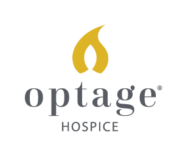Explore our frequently asked questions and answers about Hospice.
The best way to know if you are eligible for hospice is by discussing your current health status and treatment plan with your physician or a hospice provider.
The time may be right when:
- You have been diagnosed with a serious or life-limiting illness. Common diagnosis may include cancer or Alzheimer’s, dementia, a respiratory or heart condition in the final stages.
- Physical comfort, quality of life and care become the priority of treatment rather than the cure of diseases.
- You are in need of additional pain or symptom management.
It doesn’t mean choosing death — it means choosing to live life to the fullest. Usually once someone has chosen hospice, that person has been through a lot already. By choosing hospice, a patient and their family have decided to focus on the quality of their life. Choosing hospice means redefining hope.
The hospice team will meet with you and your family/caregivers and listen to understand how to best serve you.
Optage Hospice services are provided wherever you call home including a private home, senior apartment, assisted living, memory care or skilled nursing care center.
Hospice care helps patients and families by providing a variety of services, including regular visits, pain management, emotional and spiritual support, education and guidance.
In a service-based setting, hospice provides support to patients, families and care center staff. This support includes much of the same attention afforded to patients at home and is coordinated with the standard care provided by the care center.
For most persons over 65 years and enrolled in Medicare, the cost of hospice care is fully covered by Medicare hospice benefits. Hospice services are also covered by Medicaid and most private health insurance plans.
If your condition improves, you may be discharged from hospice and return to medical treatment or go on about your daily life. Or, if needed, Optage can help you transition to supportive home and community services. If you should later need to return to hospice care, Medicare/Medicaid and most private insurance will allow additional coverage for this purpose.
Your privacy is important to us. We adhere to all applicable federal and state guidelines related to privacy of personal and healthcare information. This starts once we have a formal services agreement, before a caregiver even comes to your family member’s home. The written service agreement stipulates the exact restrictions on the use of your information, which clarifies that unauthorized individuals will not be given access to information without a client’s – or legally authorized representative’s – formal consent. Your information is never sold to a third party under any circumstances.
Our parent company, Presbyterian Homes & Services, began providing home care services in 1978. In the past decade, home and community services expanded to include senior dining, home-delivered meals, home care and hospice.

